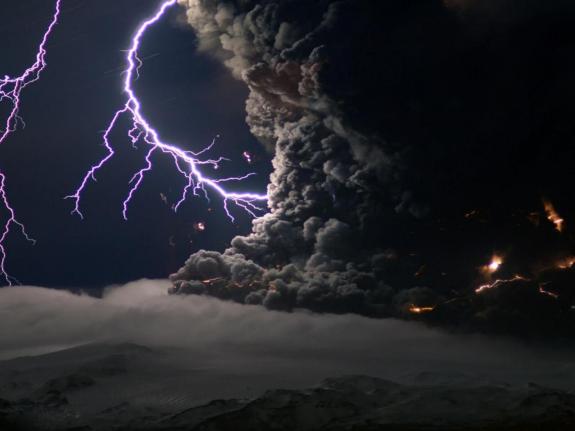Every thinking person faces the question of how God’s love for the world correlates with the presence of various sorrows and troubles in this world. Let us try to analyze this issue using the simplest examples and just outline possible answers.
Divine love, revealed to us through contemplation of the all-wise and harmonious God’s creation and through the redemptive feat of the Lord Jesus Christ, pours out on each of us. The Holy Scripture tells us that God loves every person equally regardless of their origin or social status and that Heavenly Father commands the sun to shine on both the righteous and sinners and sends rain to all the earth. God loves everyone equally like mother and father give love to all their children equally. However, this love is expressed in various ways. Sometimes parents can comfort their children, give them sweets or toys, or scold and even punish them for a prank or misbehavior. Either way is the expression of love. Father and mother love their children so much that they hide and clothe their love in the form of punishment to avoid spoiling or endangering them.
In the same way God’s love takes a specific form that we may not always like. Sometimes we ourselves overlook our own welfare and refuse what God offers us like disobedient children. Some time will pass, and we will be able to understand why we needed to experience certain events and meetings that we perceived as trouble. That is how adults remember with gratitude the persistence of their parents who forced them to learn the multiplication table which seemed terribly boring and useless in childhood.
To illustrate this idea, we can recall a classic story of a person hurrying to an airport. They have already planned the upcoming flight and an important meeting or future vacation, but they stumbled on a stone and broke a leg right near the terminal. Instead of sitting in a cabin, they are on a hospital bed and scold both the stone for turning up at the wrong time and their fate. Suddenly they find out that the plane, which they were to fly, crashed. The stone that they perceived as the source of their misfortunes, becomes a symbol of miraculous escape for them.
Of course, this simplified illustrative scheme cannot emphasize all the nuances and shades of the effect that Divine Providence and His love for us have. Yet everyone can remember more than one case in their lives when the apparent misfortune turned into joy, and the long-awaited event brought trouble and disappointment. This happens because due to time constraints we cannot fully understand what we need and what will ultimately help our salvation. God knows this better than we do, that is why in the Lord’s prayer, in “Our Father” we ask our Creator to perform His will, based on His infinite love and eternal Wisdom, both in heaven and on earth, in our lives, and in our destiny.
But sometimes it happens that a person voluntarily rejects the path that God’s love shows him or her, and chooses the path of hatred and evil, the end of which is in the depths of hell. God, who has given each of us free will at creation, gives us an opportunity to make our personal choices and allows us to do as we please. This is due to the individual’s peculiarities and due to the fact that a person differs from the rest of the created world, in that they have freedom of choice and an opportunity for moral assessment. Animals do not have it. Their behavior is determined by instincts. We possess internal moral law, and the main mechanism for choosing our behavior lies in the plane of morality. It is this opportunity that makes us humans. Sometimes we think that it would have been better if God deprived us of that opportunity, that it would have been better if it was impossible for a villain to carry out atrocities, for a liar to lie, and for a betrayer to betray. However, in this case we would cease to be humans and turn into soulless robots incapable of moral feelings and incapable not only of meanness, but also of love and friendship. Our voluntary adherence to God is important to Him, therefore, He, our loving Father, allows disobedience to happen. It is due to this that strife, injustice, murder, and war occur in our world. Neither God’s will nor His wish are the reasons for these troubles, but the wrong and unnatural use of our free will and its inducement to evil are. The more the evil accumulates in people’s hearts, the more sin and defiance of God exist in the world and the more we face their manifestations in our lives.
As we consider the reasons for the current state of our society, for socio-political and economical crisis that we are experiencing, it is important to recall the words of Bulgakov’s Proffessor Preobrazhensky, a famous literary character, “Ruin is something that starts in people’s heads”… One may even rephrase this idea and say that ruin is something that starts in our hearts and souls, which lose their light and darken. To overcome this ruin in the society, we need to overcome ruin in ourselves, clear our minds of the destructive effects of a sin, and embark on the path of repentance. There are good reasons why Saint Silouan the Athonite said, “Even the smallest sin can change the fate of the world”. Therefore, even the smallest good deed changes our world for the better, can help us to overcome the disorganization and crisis and to fulfill what God calls us to do, “Let your light so shine before men, that they may see your good works and glorify your Father in heaven”.
By Archpriest Andrei Nikolaidi
Translated by Julia Frolova

















